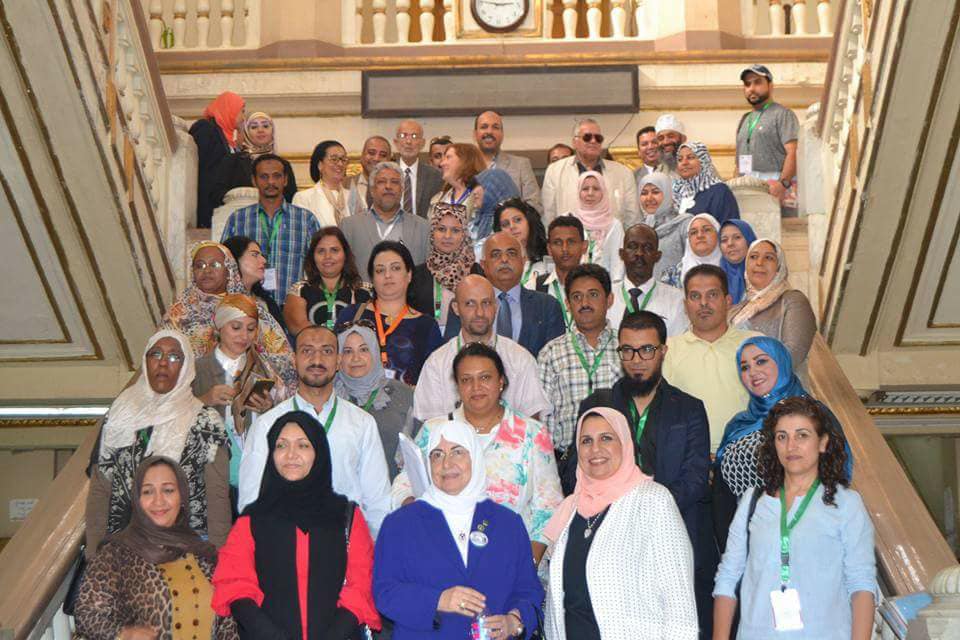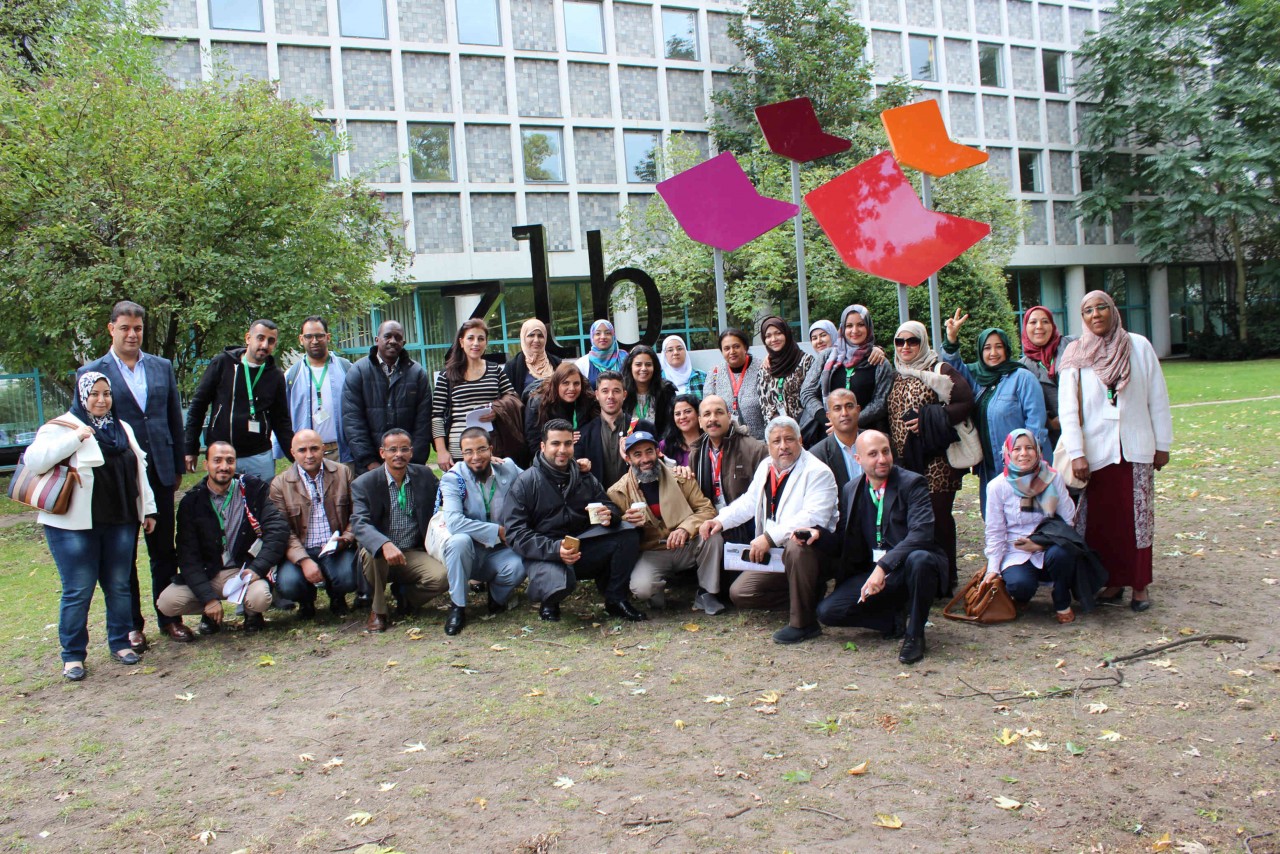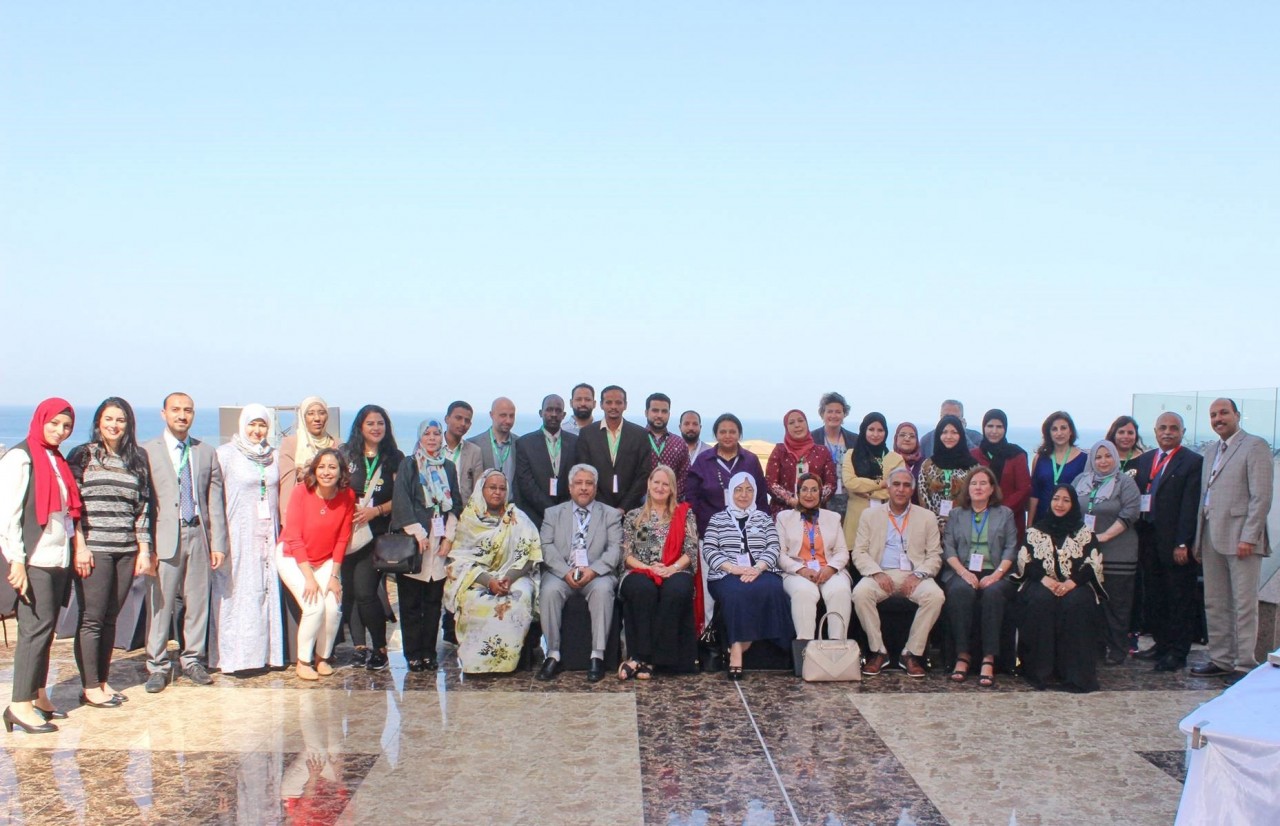Libraries on the World Stage: An Interview with the Winners of the WSIS Prize
25 September 2020
The World Summit on the Information Society (WSIS) has been bringing together governments, UN agencies, civil soceity and experts for nearly 20 years. It covers the whole range of issues at the intersection of digital technologies and the economic and social world, aiming to promote more equitable, sustainable outcomes.
As part of this, WSIS awards prizes for projects which deliver on its goals at a local level, and which can offer an inspiration to others. In 2020, a project focused on building libray capacity through eLearning was amongst the prize winners. We interviewed Heba Ismail PhD, Director of the Programme, as well as of the 2030 Arab Librarians project, and Secretary of IFLA’s Continuing Professioanl Development and Workplace Learning Standing Committee:

1. Can you give a short overview of what you did through the INELI-MENA project?
INELI-MENA is an e-training leadership program, implemented by the Arab Federation for Libraries and Information (AFLI) and funded by Global Libraries Initiatives (GL) at the Bill and Melinda Gates Foundation (BMGF). It aims to:
- Support future Arab leaders in public and national libraries by developing, improving their skills & competencies.
- Build an active regional e-learning network of emerging leaders in libraries in the Arab region by the end of the program.
- Encourage cooperation between regional library associations and specialists in the field through a cooperative project.
The program consists of:
- Online activities: a Moodle website was created to provide the participants with the learning modules; the website offered a translated version of Global Libraries INELI content, including the following modules: building successful teamwork; innovation; using data; risk management; resolving conflict; change management; advocacy; libraries and development (SDGs); and team projects.
- In-Person Activities: INELI-MENA conducted two convenings in Germany & Egypt.
- Combined In-Person and Online Activities: innovators worked in teams to produce new, innovative services and programs and implement them in their public libraries. Innovators implemented six projects for their communities: a library for homeless children; a human library; two marketing plans; a program for developing talent; and a pre-school program.
2. What impacts did this work have?
The program was very effective in changing the mindset of librarians, their skills and their competences as most of them are now engaged as the board members of their national library associations, have won grants, have engaged in the IFLA Global Vision and other regional projects, and have won different awards. I consider this is one of the most important impacts of the successful collaboration.
AFLI succeeded in sustaining the program with the collaborative cooperation of library associations across Arab countries by implementing 4 national networks. We are working closely with other association from Arab countries to continue building capacity for librarians across the MENA region.
The number of trained librarians in the 4 networks exceeded 100 trainees (about 113 leaders) and is still growing.
3. Who was involved?
Let me first thank the Arab Federation for Libraries and Information (AFLI) in taking the lead to implement this unique e-training program that lasted for two years across the MENA region; and all of the INELI-MENA team for all their sincere efforts through the process of delivering one of the most powerful leadership programs across the Arab countries, Prof . Hassan Alsereihy (AFLI president, program regional expert); Dr. Khaled el Halaby (former president of ALFI); Prof. Emad Saleh (learning coordinator); Prof. Usama El Sayed (Program Evaluator); Ms. Rasha Essmat (network coordinator); Dr. Dalia el Gohary (Translator & Interpreter): Mr. Moahemd Fayez (accountant).
AFLI’s vision in implementing the INELI-MENA program focused from the beginning on engaging one representative from each library professional association across the MENA region which shared common interests and values to ensure the sustainability of the program. This had a double benefit:
- Let the representatives observe and monitor from a very close angle the program to ensure its sustainability.
- Direct interaction with the participants through group projects and following-up with them in order to yield recommendations that will enhance the regional & local INELI-MENA experience.
In addition, AFLI engaged private sector companies who are working in the Middle East & North Africa to support the INELI-MENA program.
All the previous efforts resulted in training 31 middle management librarians from public and national libraries from 15 Arab countries.

4. How did you first find out about the WSIS prizes?
I was browsing the internet and came across EIFL website -ex-winner of WSIS- and I noticed WSIS logo on it, I begin to search for the award to get more information about it as it really captured my attention!
5. What motivated you to apply for this?
The first thing that jumped to my mind was that the program deserves to be acknowledged worldwide. INELI-MENA had its impact on innovators, library community and users. What also encouraged me was that having started by training 31 librarians, the number is still growing as we sustain the program to train more librarians on leadership skills in the MENA region, as well as providing training through national networks on a voluntary basis by the AFLI team.
Adding to all the above reasons, I love the challenge of participating in different awards and grants, it opens your horizon to great resources that you would like to explore.
6. What was the process like?
After reading about the WSIS 2020 prize and its 18 categories -mentioned below-, we went through this process
Phase 1 (Submission phase): stakeholders were invited to submit WSIS related projects to the WSIS Prize 2020 contest.
Phase 2 (Nomination phase): revision of submitted projects that were result with a list of 30 nominated projects, twenty (20) projects per action line category.
Phase 3 (Voting phase): public online voting of nominated projects (identification of five projects per category with the highest number of votes – I would like to sezie this opportuinty to thank all IFLA members who voted for us to be one WSIS 2020 Champions in the e-learning category, the number of votes for our program exceeded 5000 votes, which could not be done without your support!
Phase 4 (Selection phase): selection of wining projects by the Expert group.
Phase 5 (Prize cermony): public announcement of winners during WSIS prizes 2020 cermony of WSIS forum 2020.

7. What have the benefits of winning the prize been?
Being selected as one of the top five projects in the e-learning category and recognized as a Champion of WSIS 2020 is an honor by itself – it’s a prestigious award provided by the International Telecommunication Union (ITU).
Moreover, your hard work gets acknowledged worldwide; giving you the possibility to get to know more stakeholders and grantees, exchange information on projects and share best practices between regions.
8. Can you imagine that other library projects could win in the future?
There is a direct linkage between the WSIS action lines and the SDGs, which have been firmly adopted by the library field as part of our work to boost our impact. Therefore, the chance for libraries submitting their application to the WSIS prize are very high if they meet the criteria announced and if they fit WSIS Action Lines. Libraries can submit proposals in the following WSIS action lines:
- C1. The role of public governance authorities and all stakeholders in the promotion of ICTs for development
- C2. Information and communication infrastructure
- C3. Access to information and knowledge
- C4. Capacity building
- C5. Building confidence and security in the use of ICTs
- C6. Enabling environment
- C7. ICT Applications:
- E-government
- E-business
- E-learning
- E-health
- E-employment
- E-environment
- E-agriculture
- E-science
- C8. Cultural diversity and identity, linguistic diversity and local content
- C9. Media
- C10. Ethical dimensions of the Information Society
- C11. International and regional cooperation
9. What recommendations would you make to colleagues around the world?
Show the great work libraries and librarians are doing! Show the world we are there, we are a key player in our field, be open to every opportunity and seize it.
More information about INELI-MENA can be found here:
In the end of this meeting, I would like to thank IFLA for the interview, it had been a pleasure talking to you and thanks again for all IFLA members who voted for us.
Heba Mohamed Ismail, Ph.D.
IFLA CPDWL SC Secretary
Director of INELI-MENA program
Director of 2030 Arab Librarians
Libraries Technical Manager
Egypt’s Society for Culture & Development
(Formerly Integrated Care Society)